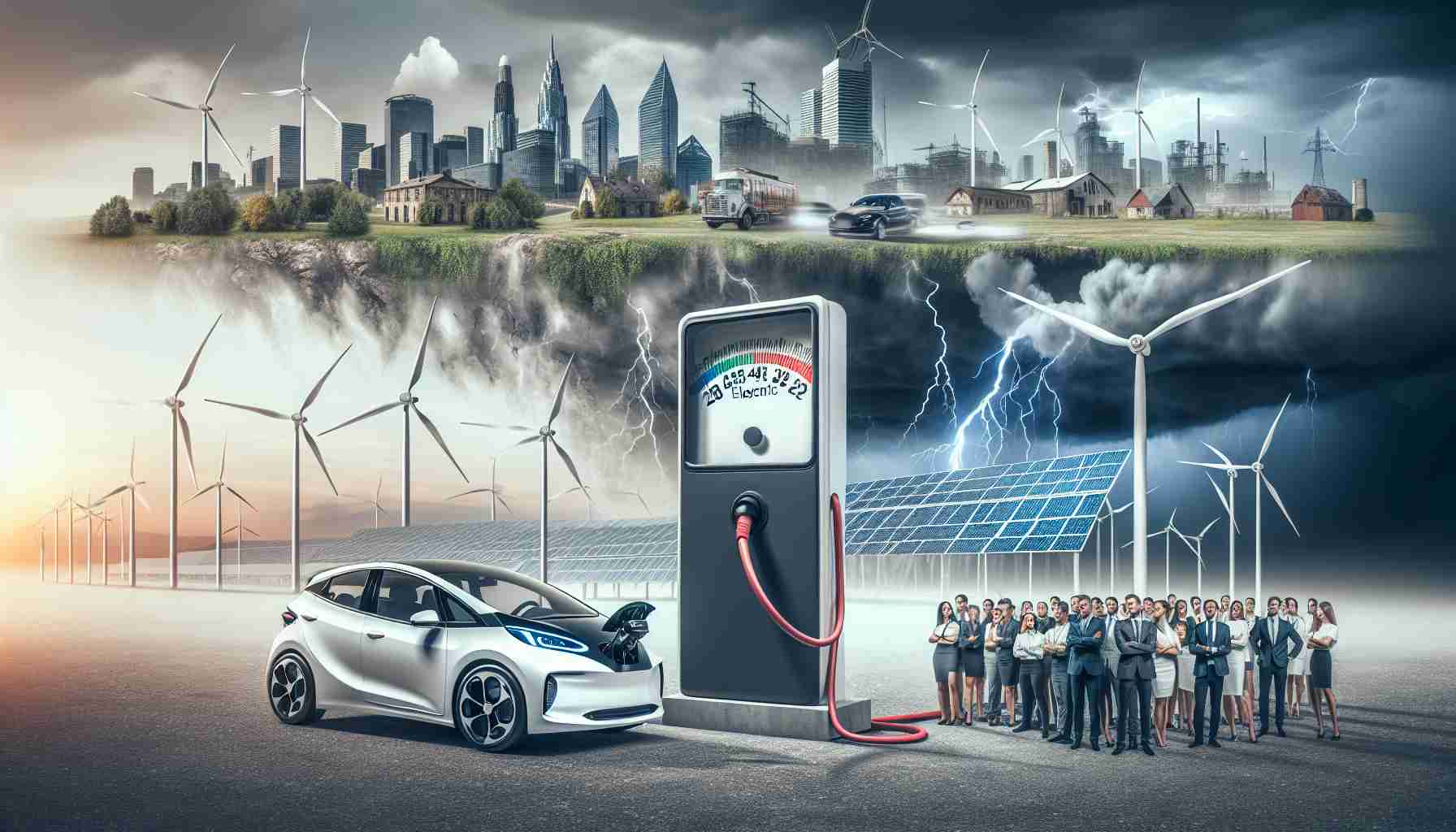- The UK is set to ban new petrol and diesel cars by 2030, prompting a shift towards electric vehicles (EVs).
- Soaring energy costs are a major hurdle for consumers considering EVs, with many waiting for price reductions before making a switch.
- A survey indicates 28% of respondents would only consider buying an EV with a significant decrease in their energy bills.
- 20% of individuals are still open to exploring EV options despite current costs, revealing a potential shift in mindset.
- Younger drivers aged 25-34 are more inclined to adopt EVs compared to older generations who remain resistant.
- Experts emphasize the need for government and energy regulators to enhance transparency and affordability to encourage EV uptake.
As the UK hurtles toward its 2030 ban on new petrol and diesel cars, two revealing studies are highlighting the complex factors swaying public opinion on electric vehicles (EVs).
Many consumers are feeling the heat from skyrocketing energy prices, which act as a formidable barrier to embracing electric alternatives. A recent survey of 2,000 adults in the UK unveiled that a staggering 28% would only entertain the idea of purchasing an EV if their annual energy expenses dropped by £100 or more. With the average household currently shelling out £1,738 yearly for gas and electricity—an increase fueled by a series of price hikes—many are content to stick with their traditional vehicles.
Yet, amidst this economic pressure, a surprising twist emerges. Notable public figures speaking out against EVs might be inadvertently igniting a newfound interest. While energy bills remain a sticking point, 20% of respondents expressed a willingness to explore EV options, even with costs unchanged. Interestingly, younger drivers (ages 25-34) are leading the charge toward EV adoption, while many older individuals remain firmly entrenched in their reluctance.
In the face of these challenges, experts argue that both the government and energy regulators must prioritize transparency and affordability to boost EV adoption. With the clock ticking down to 2030, it’s clear that a concerted effort will be crucial for transitioning to greener transport options. The road ahead may be rocky, but the drive towards sustainability is undeniable.
Is the Future of Electric Vehicles in Jeopardy? New Insights on Adoption Trends!
Understanding Electric Vehicle Adoption in the UK
As the UK prepares for its 2030 ban on new petrol and diesel cars, a complex interplay of factors influences public opinion on electric vehicles (EVs). Recent studies reveal both the challenges consumers face and the unexpected opportunities that may arise in the transition to electric mobility.
# Key Insights and Trends
1. Consumer Reluctance Due to Energy Costs:
The surge in energy prices plays a crucial role in deterring consumers from switching to EVs. A significant 28% of survey respondents indicated they would only consider purchasing an EV if their annual energy expenditures decreased by £100 or more. This implies that energy affordability is integral to enhancing EV acceptance.
2. Demographic Shifts in EV Interest:
Interestingly, younger consumers aged 25-34 are more enthusiastic about transitioning to EVs. This demographic accounts for a greater portion of potential EV buyers, showcasing an encouraging trend in the younger generation’s commitment to sustainable transport.
3. Public Figures Fueling Interest:
The involvement of notable public figures in the EV discourse, particularly when expressing skepticism about electric cars, seems to be inadvertently fostering curiosity among the public. Approximately 20% of respondents reported a willingness to explore EV options, highlighting a paradox where criticism might spark further interest.
4. Importance of Government Intervention:
Experts emphasize that transparency and affordability from the government and energy regulators are essential for widespread EV adoption. Successful policy implementations will play a pivotal role in making electric vehicles accessible and appealing to the public.
# Limitations and Challenges
– High Upfront Costs: Despite potential savings on fuel in the long run, the initial cost of purchasing an electric vehicle remains a barrier for many consumers.
– Charging Infrastructure: The adequacy and availability of charging stations continue to be a concern, particularly in rural and less densely populated areas where infrastructure development is lagging.
– Battery Lifecycle and Environmental Concerns: Concerns regarding battery production’s environmental impact and subsequent disposal or recycling processes can affect public sentiment towards EVs.
Related Questions
1. What are the main reasons consumers are hesitant to purchase electric vehicles?
Consumers primarily cite high energy costs, significant upfront expenses, and insufficient charging infrastructure as the main deterrents to buying EVs.
2. How is government policy influencing electric vehicle adoption?
Government policies that include incentives, subsidies, and the establishment of charging infrastructure are crucial in facilitating a smoother transition to electric mobility.
3. What demographic is most likely to adopt electric vehicles in the UK?
The demographic trend indicates that younger drivers, particularly those aged 25-34, are more open to adopting electric vehicles, driven by environmental concerns and technological enthusiasm.
For further information on electric vehicles and the market landscape, visit UK Government.














